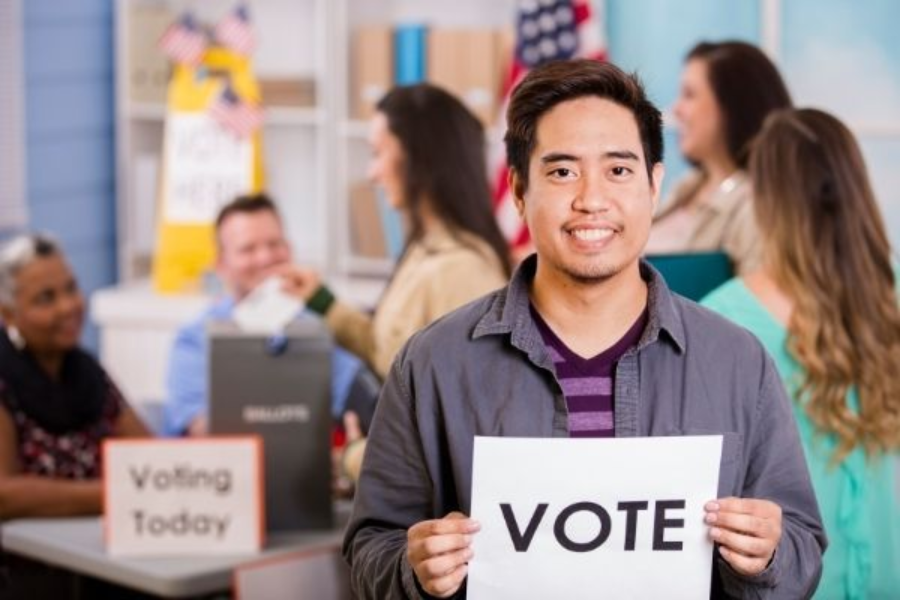What is Voter Education?
Voter education involves providing citizens with essential information about the voting process, candidates, and issues at stake in an election. It’s about equipping voters with the knowledge they need to participate in the democratic process effectively.
Effective voter education ensures that individuals are aware of how to vote and understand the significance of their vote. This understanding is crucial for fostering a sense of responsibility and active election participation. By being well-informed, voters can make choices that align with their values and community needs, leading to better governance and policy outcomes.
Why Local Elections Matter
Local elections may seem less glamorous than national elections, but they are equally, if not more, important. Local officials make decisions that impact our daily lives, from education policies to public safety measures. Research has shown that well-informed voting in local elections can lead to better community outcomes. Resources like local election candidate information are invaluable for this purpose.
When voters understand the direct impact that local elected officials have on their lives, they are more likely to participate in these elections. Local officials can influence budget allocations for public services, zoning laws, and local regulations that affect everything from business operations to environmental practices. This increased participation can lead to more representative and effective governance, as elected officials are more likely to reflect their community’s actual needs and desires.
Methods of Voter Education
- Workshops and Seminars
- Informative Pamphlets and Flyers
- Online Resources and Social Media Campaigns
- Community Meetings and Forums
These methods help communicate critical information about candidates and issues to the electorate. Workshops and seminars can provide in-depth discussions and allow for questions and answers, helping to clarify complex issues. Informative pamphlets and flyers help reach a broad audience quickly and effectively. Online resources and social media campaigns can engage younger voters and those who prefer digital communication. Community meetings and forums create spaces for direct engagement with candidates and experts, fostering a deeper understanding of the issues. By leveraging these approaches, communities can reach a broader audience and ensure that more voters are informed and prepared to participate in elections.
Impact of Voter Education on Turnout
Effective voter education has a positive impact on voter turnout. When voters understand the importance of their participation and are informed about how to cast their ballots, they are more likely to turn up at the polls. A study by Brookings highlights that voter education initiatives have been instrumental in increasing voter turnout, especially among younger populations.
This trend is significant because higher turnout often leads to more representative elections and reflects the community’s will better. Educated voters are also more likely to hold their elected officials accountable, leading to improved governance. Voter education that targets specific demographics, such as young, first-time voters, or historically marginalized communities, can also help to reduce disparities in political participation, making the electoral process more inclusive and equitable.
Challenges in Voter Education
- Dissemination of Misinformation
- Lack of Resources and Funding
- Language Barriers
- Cultural Differences
These challenges can hinder the effectiveness of voter education programs. Misinformation, for example, can lead to confusion and distrust among voters. Addressing these challenges requires a concerted effort from community leaders, educators, and civic organizations. Lack of resources and funding can limit the scope of voter education efforts, making it difficult to reach all population segments. Language barriers can prevent non-English speakers from accessing critical information, while cultural differences may require tailored communication strategies to ensure that voter education resonates with diverse communities. Tackling these challenges head-on is essential for creating an informed and engaged electorate.
Real-Life Success Stories
Across the country, numerous success stories demonstrate the effectiveness of voter education programs. For instance, a grassroots organization ran a door-to-door campaign in Atlanta, educating voters about local candidates and policies. This resulted in a record turnout for a municipal election, showcasing the power of informed voting. In another example, a statewide initiative in California provided comprehensive voter guides in multiple languages, leading to increased participation among non-English speaking communities.
Such success stories highlight the potential of voter education to transform electoral participation and outcomes. Other communities can develop effective voter education initiatives by learning from these examples. These stories serve as powerful reminders that informed and engaged voters are crucial for the health of our democracy. They also illustrate the diverse approaches that can be taken to educate voters, from grassroots campaigns to statewide programs, each tailored to meet the unique needs of different communities.
Ways to Promote Voter Education
- Collaborate with Local and National Organizations
- Utilize Social Media Platforms
- Engage in Community Outreach Programs
- Host Informative Events and Discussions
By adopting these methods, communities can ensure that their voters are well-informed and prepared to participate in elections, strengthening the democratic process. Collaborations with local and national organizations can bring additional resources and expertise into voter education efforts. Utilizing social media platforms can amplify messages quickly and engage a younger, tech-savvy audience. Community outreach programs allow for direct and personal engagement with voters, building trust and credibility. Hosting informative events and discussions provides a platform for open dialogue and a deeper understanding of the issues at stake. These strategies combined can create a comprehensive approach to voter education, fostering a more informed and active electorate.
Stay in the know with the latest news and updates on buzzslash




